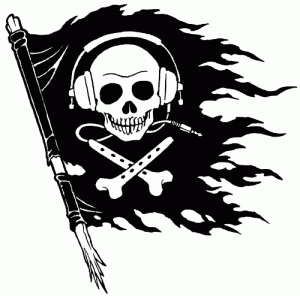Several top US Internet service providers are collaborating with the entertainment industry to clamp down on piracy, according to a CNET report. After years of being hounded by groups such as the MPAA and RIAA, Internet gatekeepers including AT&T, Comcast and Verizon are reportedly on the verge of introducing a graduated response system to punish pirates. CNET's sources claim that a final agreement hasn't been inked yet, but the plan is "on track" to be unveiled next month.
Although "graduated response" probably evokes memories of France's three-strike policy, the American adaptation won't be quite as strict – initially, anyway. France's HADOPI law requires ISPs to warn alleged copyright infringers of their conduct two times. The third time someone is caught transferring unapproved content, they can be suspended from the Internet (the offender is blacklisted from all Web providers), fined hundreds of thousands of dollars and face up to two years in prison.
Conversely, the arrangement between American ISPs and the recording industry is voluntary, and suspected infringers won't necessarily face three strikes. According to CNET's unnamed insiders, ISPs will be able to choose how many warnings they want to issue before terminating a customer's service. If a rightsholder logs your IP address downloading or sharing unsavory material, they can notify your ISP, who will bombard you with so-called "Copyright Alerts."
If you fail to comply with those warnings, the recording industry will expect your ISP to escalate matters by selecting from a list of sanctions. Depending on the severity of the case, you might have your connection throttled or you could even be limited to the top 200 websites. Although it's not necessarily required, ISPs may also disconnect you from their service entirely, but this already occurs in select areas where ISPs have agreed to cooperate with antipiracy groups.
It's unclear what the framework will cost to implement and oversee, but both sides are reportedly splitting the expenses. Representatives for the RIAA, MPAA, and NCTA (National Cable and Telecommunications Association, which includes Time Warner Cable, CableVision, Charter, Comcast and Qwest), declined CNET's request for a comment. Unfortunately, it seems most ISPs are involved in the discussions, so you probably won't be able to escape the arrangement.
